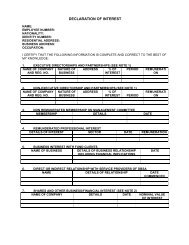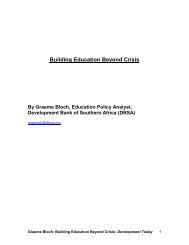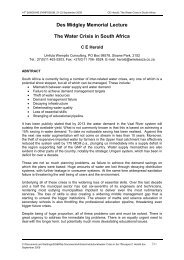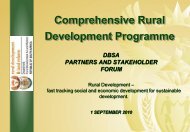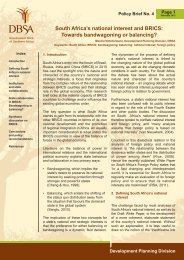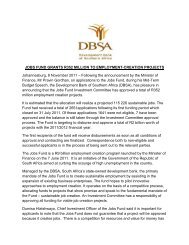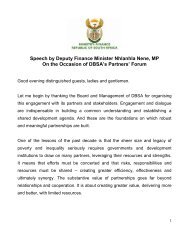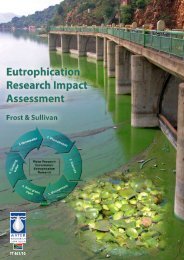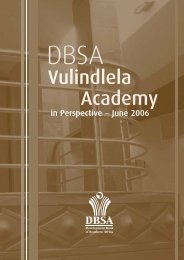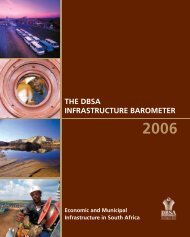A Knowledge Strategy
A Knowledge Strategy
A Knowledge Strategy
Create successful ePaper yourself
Turn your PDF publications into a flip-book with our unique Google optimized e-Paper software.
• COP will identify development strategies for SADC countries, capacity<br />
building opportunities in SADC, and the partnering of available expertise SA<br />
and SADC.<br />
Lesser opportunities offering moderate returns exist in:<br />
• project management – COP to develop and share methodologies and strategies,<br />
including project planning for highly complex projects;<br />
• integrated development planning – facilitated by COP and including clients;<br />
• management of the Treasury and competitiveness of the DBSA, especially<br />
interest rates;<br />
• develop a common set of development impact indicators and their monitoring;<br />
• develop solutions for challenges identified in surveillance reports and further<br />
business development opportunities.<br />
Opportunities also exist in broadening risk management, supporting decentralisation,<br />
building local market knowledge, and identifying market and business development<br />
opportunities.<br />
From the list above it is clear that no difficulty is experienced in finding<br />
opportunities for goal-directed and self-managed collaboration through the COP<br />
process. Especially exciting is the prospect of creating COP’s where tools, learnings,<br />
philosophies and approaches may be validated and shared with clients. A strong<br />
and defensible methodology, an easy-to-use virtual infrastructure, as well as the<br />
development of COP moderation skills are the required inputs to what may become<br />
a powerful way for the DBSA of accelerating capacity-building and creating and<br />
sharing knowledge assets.<br />
3.2.4 Issues arising in change management<br />
<strong>Knowledge</strong> management is the common denominator underlying a number of<br />
internal business processes and programmes. <strong>Knowledge</strong> management is not just<br />
another initiative or the prerogative of a single cluster or unit in the organisation.<br />
Operational and specialist professionals should be encouraged to collaborate in<br />
a single knowledge process. <strong>Knowledge</strong> banks cannot be silo’d. Collaboration is a<br />
key success factor for implementing knowledge management.<br />
The role of experts, and the performance management environment more<br />
generally, should be aligned with the needs of the DBSA. The Bank’s business is not<br />
merely a matter of disbursing funds but one of contributing know-how to its<br />
development partners and clients.<br />
32 Development Bank of Southern Africa



